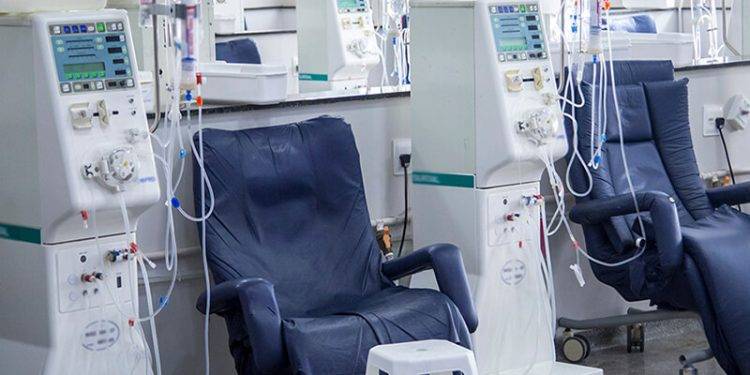The Private Health Facilities Association of Ghana has called on the government to eliminate import duties on dialysis machines. This move, they argue, would support the government’s upcoming initiative to provide free dialysis treatment to kidney patients under the National Health Insurance Scheme (NHIS).
Dr. Mahamudu Bawumia, Vice President and flagbearer of the New Patriotic Party (NPP), announced during a stakeholder meeting in the Old Tafo Pankrono constituency that the free dialysis initiative would take effect on December 1, 2024. The program aims to ease the financial burden on kidney patients while improving access to life-saving treatment.
In response, Samuel Boakye Donkor, Vice President of the association, stressed the importance of removing import duties on dialysis machines to reduce operational costs for health facilities. Speaking to Channel One News, he stated, “If dialysis machines can be imported duty-free, there will be an increase in their availability, which will, in turn, lower the overall cost of dialysis. Without this, facilities might have to consider factors such as machine costs, import duties, and NHIS reimbursements, potentially leading to additional charges for patients.â€
Donkor explained that eliminating import taxes would make dialysis treatment costs manageable within the NHIS framework. "When import duties are removed, more machines will be available, making dialysis more affordable. This will enable the NHIS to cover the treatment fully, without requiring patients to pay additional fees," he added.
The demand for dialysis services in Ghana far exceeds the current capacity. According to the Health Facilities Regulatory Agency (HeFRA), there are only 14 registered dialysis centers nationwide, split equally between public and private ownership. This falls significantly short of the estimated 15,400 patients requiring dialysis annually, with only 1,195 patients—just 7.8% of the estimated need—currently receiving treatment.
The Private Health Facilities Association believes that scrapping import duties could encourage more facilities to invest in dialysis machines, boosting access and aligning the government’s free dialysis initiative with the growing demand for care.
The association’s proposal comes at a crucial time, as Ghana seeks to address the pressing healthcare needs of its population. By making treatment more accessible, this policy could transform the landscape of kidney care in the country and ensure the successful implementation of the free dialysis initiative.
The initiative, if supported by complementary measures such as tax exemptions, could significantly reduce the mortality and suffering caused by kidney disease. The association urges swift government action to remove barriers and create an enabling environment for better health outcomes.
Source: CitiNewsroom.com




No comments yet
Be the first to share your thoughts!